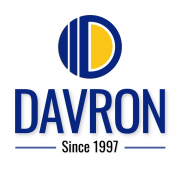A common question asked by clients is whether they need two versions of their resume. Sounds a little crazy, doesn’t it? As if writing one resume of himself wasn’t enough, now he has to write two versions?
Here is the answer: it depends.
Here are three questions to ask yourself when you start writing your resume (by the way, even if you’re pretty sure you don’t need two resumes, I recommend asking yourself these questions anyway. especially the third).
#1 – Am I Applying for the Next Job? various fields?
If the answer is yes, then you’re applying for a job in a completely different field, so you’ll likely need two versions of your resume. Why? Two different fields of work probably come with different responsibilities and qualifications. It is important that your resume matches the requirements of the role.
It’s common to have two versions of your resume. It is becoming increasingly common for job seekers to have diverse skill sets that enable them to pursue multiple career directions.
An example is shown below. Let’s say you’re a project manager with extensive training experience. You want to apply for a project management position, but you also enjoy training so much that you also want to apply for a trainer position. However, these two roles have very different titles, skills, qualifications, and experience requirements. As a result, you may need two different versions of your resume. One focused on project management and one on training.
#2 – Do You Have Requirements and Responsibilities? consistent Are there any jobs you would like to apply for?
Your resume should match the job you ultimately want to apply for. He has two reasons for this. First, our applicant tracking system scans your resume for relevant keywords to identify if you fit the role. Next, hiring professionals such as HR and hiring managers should review your resume to see if it has the required qualifications and skills. This doesn’t mean your resume has to be a carbon copy of the job description, but it does mean that it should include similar keywords and relevant experience. Otherwise, recruiters won’t know you can do the job.
Problems can arise when job description requirements and responsibilities are inconsistent between the positions you want to apply for. It can definitely happen in the same industry and in the same field.
Marketing positions are a great example to illustrate this. Marketing, like many other careers, is clearly a multidisciplinary and multidisciplinary field. Here are some examples of what positions exist within one career.
- Marketing Copywriter – Creates creative marketing copy and content for various sources such as social media, websites, newsletters, etc.
- Marketing PPC (Pay Per Click) Specialist – specializes in managing paid digital advertising campaigns.
- Marketing Social Media Coordinator – Oversees marketing campaigns across multiple social media channels.
Although these positions are similar, the focus of the roles is quite different. One role focuses on content creation, the PPC Specialist role focuses on paid digital campaign expertise, and possibly Search Engine Marketing (Google Ads). Social media roles require social media expertise, but search engine marketing is barely mentioned. Each position requires a slightly different set of qualifications and skills, so it’s important to make sure your resume highlights the skills commensurate with each role.
#3 – Are the job descriptions different enough to require an entirely different resume, or is it okay to create a different resume? Fine tune your resume by role?
This is very important to consider. If you can tweak each version of your resume a bit to more closely match the requirements of the job description, it’s a lot easier than creating an entirely new resume. Deciding how to approach this will depend on each person’s background and experience, but there are some additional questions to ask yourself to help you decide.
- Compare job responsibilities between posts. Is the content about 75% similar? If so, you are likely to be able to quickly edit some of the content across applications, thus highlighting relevant experiences.
- Is there a different emphasis on keywords throughout (for example, one role might focus on project management and another on customer success, but overall the responsibilities are similar)? If so, you may be able to tweak your wording overall to make your resume more consistent with what you’re posting.?

By the way, the top third of your resume really helps here. By including a headline, summary, and core competencies in the top third of your resume, you can easily customize your resume for the job you’re applying for.
my free online Resume health checkup course You can solve all the above questions. This course will teach you how to think like a recruiter, how to determine if he really needs two versions of a resume, and how to effectively tailor a resume to apply for different jobs. Learn.




